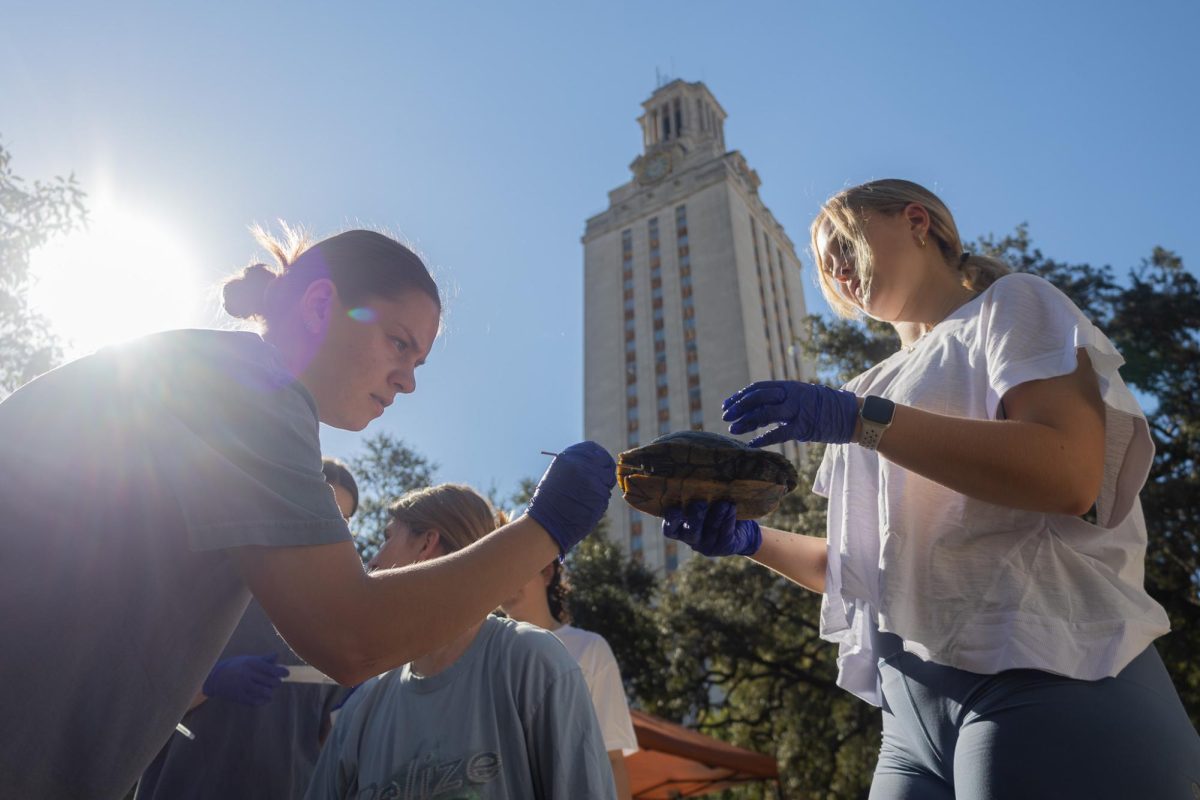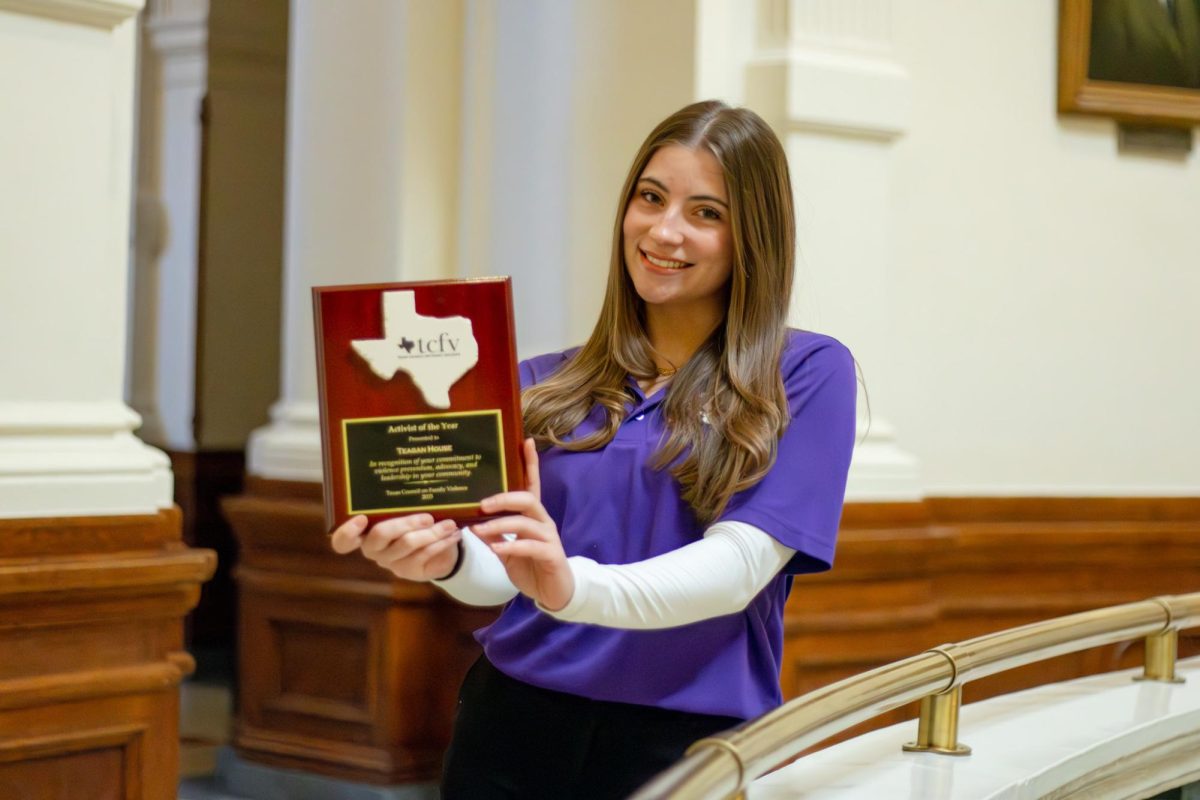Meredith Winfield grew up catching red-eared slider turtles from her family’s catfish pond. When the invasive turtles began eating the fish, she and her brother captured the turtles with a Home Depot bucket, secretly moving them to her neighbor’s pond.
Now an environmental science junior, Winfield works as a team leader for the Texas Ecology, Evolution and Behavior (EEB) Club’s research on UT’s turtle pond. The research began last fall with the goal of better understanding the microbiomes of the turtles. But with a new leak in the pond, the future of the research remains uncertain.
“I joined as soon as it started,” Winfield said. “It was the first lab I was a part of, and it’s (been) really exciting to get undergrads involved with research.”
Last year, the group said they collected and analyzed samples from turtles in ponds around the Austin area.
“This year, we’re just focused on the turtles at the UT turtle pond,” said associate professor Justin Havird, the advisor for the EEB Club’s research. “The idea is to tag every single turtle in the pond and then sample their microbiome repeatedly throughout the year to see how microbiomes change with the seasons in individual wild animals.”
Once a week, students meet at the turtle pond to collect DNA samples from different areas of the turtles — swabbing their shells, skin and mouths.
“Later on, we extract the DNA from those swabs and do a sequencing protocol that allows us to figure out which microorganisms are there,” Havird said. “That’ll let us look at the community composition of those microorganisms on different parts of the turtle.”
The team made the research sessions open to the public, which Winfield said may impact how the community interacts with the turtles moving forward.
“The turtle pond is always being messed with by students,” Winfield said. “Turtles are getting fed, turtles are getting drawn on and turtles are getting stolen. It is important to have a better understanding of how human impacts are connected with ecosystems.”
Mariangel Correa Orellana, a second-year Ph.D. candidate in the department of integrative biology, said students with differing interests can benefit from this research.
“We have students that want to do pre-med, so they’re more interested in the lab work,” said Correa Orellana, who led the program last year. “We have students in data science, and they want to do coding and learn more about bioinformatics. (This) project gives students the opportunity to do different kinds of jobs in research.”
Due to a leak, Havird said the University will drain the turtle pond later this semester. The turtles will be relocated to a safe environment during the repairs.
“If you see dry ponds without turtles, don’t panic,” Havird said. “The turtles are okay. They’ll be coming back soon.”
Havird said the change offers a blessing in disguise. Students will continue to sample the turtles over the course of the move.
“I think (the relocation) will be good for us,” Correa Orellana said. “We will be able to track the microbes and see if they have been impacted by the move.”














